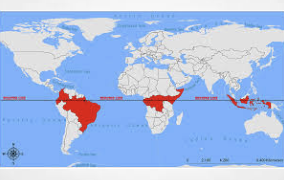Sacramento – San Francisco Assemblymember Matt Haney has reintroduced his popular bill to create Cannabis Cafes in California.
Assembly Bill 1775 empowers cities to choose to allow Amsterdam-style Cannabis Cafes where Californians can enjoy food, coffee, and entertainment while consuming cannabis. Last year the bill sailed through both the Assembly and Senate with broad bipartisan support before being vetoed by Governor Gavin Newsom, citing concerns about workers being provided a smoke-free environment. At the Governor’s urging, Haney is in conversations with the Department of Cannabis Control and the Governor’s office, to address those concerns and to create a bill that allows Cannabis Cafes but protects workers’ health.
Last year Haney’s AB 374 allowed cannabis dispensaries — with permission from local governments — to convert their businesses into cafes where they could sell food and cannabis products and host live concerts. Although it is currently not illegal in California for customers to smoke or consume cannabis on-site in consumption lounges, it is illegal for dispensaries to sell non-cannabis products like coffee or food.
The Cannabis Cafe bill enjoyed broad bi-partisan support in both of California’s legislative houses passing in the Assembly with a final 66 to 9 vote and passing the Senate with a 33 to 3 vote.
The bill was widely seen as an attempt to level the playing field for the highly taxed and regulated legal cannabis industry that is being forced to compete in California with a thriving cannabis black market. The illegal sale of cannabis is extremely profitable in California with illegal sellers choosing to simply ignore costly regulations, product testing, permitting, and taxation. California’s legal cannabis sales reached $4 billion in 2020, while illegal sales are believed to have surpassed $8 billion that same year.
“It’s really about fairness and supporting businesses that follow the rules,” said Haney, “If we keep allowing unnecessary regulations to strangle California’s legal cannabis businesses, we’re just encouraging illegal drug sales and all of the problems that come with that.”
The Netherlands, which competes with California as the world capital of cannabis culture, legalized cannabis cafes in the 1970s with the intent of depriving illegal drug dealers of cannabis revenue. The country has been successful at both killing its illegal cannabis black market and creating an important economic engine and tourist industry centering around Cannabis Cafes. The Netherlands — which is ten times smaller than the state of California — has more than 700 cannabis cafes where tourists spend over 1 billion dollars every year.
“So much of the world’s cannabis culture comes from right here in California,” said Haney. “Californians are proud of our state’s wine culture, and we do everything we can to make sure that our winemakers receive the support they need — we need to be doing the exact same thing for cannabis. If we don’t start supporting these businesses we are going to lose decades of being at the forefront of the cannabis movement and other states will be ready to swoop in and take it from us.”
Newsom’s veto message cited concerns that the bill in its present form could undermine California’s smoke-free workplace protections. In 2016, with the passing of Prop 64, voters legalized the onsite smoking of cannabis in licensed dispensaries. Smoking cannabis is illegal outdoors, in all public places, in apartment buildings, and automobiles. Without onsite smoking in dispensaries, it would be functionally illegal for anyone other than homeowners and their guests to smoke cannabis in California.
“To be clear, we’re not saying that coffee shops should be allowed to sell cannabis,” said Assemblymember Matt Haney. “We’re saying that cannabis shops should be allowed to sell coffee. It shouldn’t be illegal for an existing cannabis business that already allows onsite smoking to move away from only selling marijuana and instead have the opportunity to grow and create jobs by offering coffee or live jazz.”
Cannabis cafes will only be allowed to open in cities and counties that pass legislation to allow them. If the Governor signs AB 1775, the bill will come into effect on January first of 2025. Local governments will then have the opportunity to create a permitting process and regulations for local cannabis cafes. West Hollywood has already passed legislation creating a licensing system, and a similar bill is currently working its way through the San Francisco legislative process.
“The voters of California have already decided to legalize the smoking of cannabis in public dispensaries,” said Haney. “AB 1775 just allows businesses where smoking is already happening to sell coffee and food and allow live music. I appreciate and respect the Governor’s concerns about workers’ health. And I’m looking forward to working closely with his office and with labor leaders to make sure we get this right for AB 1775.”


















